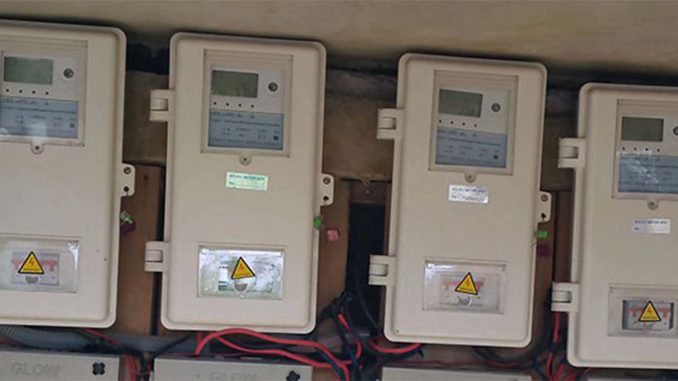
Mr Pius Osadolor applied to be connected to the public electricity grid when he first moved into his “new” house a little over a decade ago. He was asked to go to a nearby bank and pay for a meter as part of the conditions for approving his request. This he promptly did. Armed with his teller, he returned to his local utility undertaking at Akute, a suburb of Ogun State on the border with Lagos.
There, a receipt was issued, a file opened and a number allocated to his premises. Documentation completed, he was asked to go home and wait for field officials to visit and connect his building. Alternatively, he was told, he could hire a competent electrician to do the same. He chose the latter. Within hours, his home was connected, thanks to Ade, his ever reliable electrician. He knew better than wait (indefinitely) for government officials to do their job. Not after paying a fortune for a concrete pole and over a hundred metres of high tension cables to run his own power lines from the street to his building.
Five years on, Osadolor’s meter had yet to arrive, although his monthly “energy usage” bills never failed even for once. Including when there was no supply for weeks or months.
Each time he enquired about the meter he paid for, he was told to try again after a few months as there were no new meters to be allocated at the moment. Once, an official asked him whether he was interested in the meter or the electricity supply. He got the message but refused to give up.
Fast forward to 2014. The Nigerian Power Sector Reform programme was in full swing. After years of bureaucratic foot-dragging and technical difficulties, the behemoth Power Holding Company of Nigeria was unbundled into several generation, transmission and distribution outfits with significant private capital infusion and ownership. Optimism was in the air. Nigerians were hopeful that, just as the telecom sector was successfully transformed years earlier, the power sector would soon be a paragon of efficiency, professionalism and innovation.
Osadolor was one of such optimists. Once again, he approached his local undertaking (now under a distribution company called Ikeja Electric) to press for a meter. He had read in the newspapers that under a fresh arrangement between regulators and distribution companies, customers were forbidden to pay directly for meters as they would be paid for indirectly through a monthly service charge built into the bills of all customers nationwide for an agreed number of years.
Surely, things were looking up in the power sector, Osadolor reasoned. And having paid years earlier for the same item that was now “going for free”, people like him might even get a preferential treatment, he hoped. He presented his documents and was told that meter allocation was not under the purview of the local undertaking. He was advised to go to the regional office at Abule Egba or the headquarters at Alausa. If he was lucky or knew someone senior enough in those places, he might get his meter quickly. But no promises, he was told, as meters were hardly available for distribution.
After over a dozen random visits and few official letters, nothing changed for him. He was still receiving monthly estimated bills of between N6,000 and N10,000 for his modest three bedroom bungalow where he lives with his wife and three children. Meanwhile, every now and again, he would hear of a neighbour or friend who had the “fortune” of receiving a prepaid meter after parting with an unreceipted sum of N40,000 or N50,000, usually paid to a “facilitator.” From such metered neighbours, he learned that monthly electricity usage rarely hit N2,000 naira for small homes like his, even on rare occasions when supply was generous. All of his appeals to benchmark his monthly estimated bills with the neighbourhood average pending the installation of his meter fell on deaf ears. Meanwhile, he was advised to keep servicing his account monthly. He decided to start paying N2000 each month, the only problem being that his outstanding balance kept rising to an embarrassing level. Now, whenever he complains, he is told that he is owing so much already and needs to clear that balance to get a decent hearing. His frustration is mounting. He feels blackmailed.
Fast track once again to December 2018. Osadolor was watching television one evening when he heard that a new arrangement was being made for electricity consumers all over the country to obtain meters.
According to the report, the National Electricity Regulation Commission had licensed a number of private, independent organisations called Meter Asset Providers who are to take up the task of procuring, distributing and installing meters nationwide. Consumers like Osadolor are to approach one of the MAPs, pay a sum of N35,000, and within 10 days a unit of the elusive meters would be installed on their premises.
He did not know whether to laugh or cry about this news. It sounded like another wild goose chase. All he could think about was that after over 10 years of sustained effort and countless man-hours lost, he was yet to obtain a meter he had already (technically) twice paid for. And now he was being asked to pay yet again and commence afresh the uncertain process of getting what is ordinarily an entitlement of every electricity user worldwide.
Victor Anazonwu, Ikeja, Lagos
END

Be the first to comment